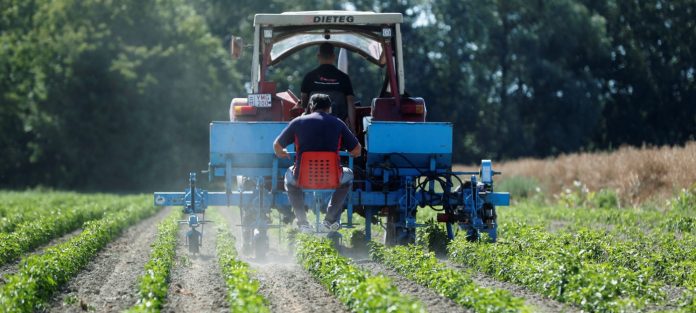
The agricultural fertilizer industry warns of an «unsustainable» scenario
The scenario for the Spanish and European fertilizer industry «has become unsustainable, leading to production declines» after the beginning of the invasion of Ukraine by Russia, have assured Efeagro sources of the National Association of Fertilizer Manufacturers (Anffe).
«Currently, many European producers of nitrogen fertilizers use natural gas as a raw material» and, this, «represents between 60% and 80% of the operating costs of our industry», they have explained to Efeagro from this organization.
To high gas prices have added the fact that «the main competitors of the sector, located in North Africa and Russia, do not have carbon policies such as the European Union (EU)», where these translate into «high emission allowance prices (ETS)».
In his opinion, «it is key» that the EU Executive and that of the EU Member States recognize this industrial activity as «a critical sector», and that «maintain those measures that protect European producers against the possible unfair practices of their competitors».
They also called for «the removal of obstacles that could lead to company closures or to a decrease in production and the shortage of fertilizers», since «it could have a detrimental effect on Europe’s food sovereignty».
From the Spanish employers of fertilizers have stated that «the sector is one of the fundamental links of the agri-food chain», in addition to «one of the most relevant for the survival and quality of life of the population».
«For this reason -they have added- it was declared by the Spanish government as an essential sector during the crisis provoked by the covid».
Given the «critical situation» suffered by firms in the sector, Anffe stressed that «it is important to safeguard the European production of fertilizers to ensure food security».
On 19 July, the European Commission (EC) proposed temporarily suspending tariffs on inputs used for the production of nitrogen fertilizers, namely urea and anhydrous ammonia, until the end of 2024.
This proposal, which has not yet been approved and is to be discussed by the Member States in the Council with a view to its adoption, aims to «reduce costs for EU producers and farmers», according to an EC communiqué.
Its purpose is also to «increase diversification and stability of supply» of fertilizers, «by encouraging imports into a wider range of third countries, while excluding Russia and Belarus from tariff suspension».
The EC has recognised the «profound negative impact» of the military aggression against Ukraine on the Community’s production of nitrogen fertilizers, as Russia was until the beginning of the conflict the second supplier of inputs for its manufacture.
In 2021, the EU imported 2.9 million tonnes of ammonia and 4.7 million tonnes of urea from third countries, whose prices increased already in the course of last year and even more after the start of the war in Ukraine, the Commission noted.
The Copa and Cogeca, which represent EU producers and agricultural cooperatives, have assured after learning of the EC proposal that the measure «goes in the right direction», although they want it to spread to other key fertilizers used directly by farmers.
Among them, they have mentioned urea ammonium nitrate (UAN), diamonic phosphate (DAP), monoammonium phosphate (MAP) and nitrogen-phosphorus-potassium (NPK).
They also supported the suspension of anti-dumping measures on UAN imported from Trinidad and Tobago and the United States.
According to the Copa-Cogeca, Russia, Belarus and Ukraine accounted for 43% of EU mineral fertilizer imports before the war. EPHEMERAL
SOURCE: AGROCLM.COM
